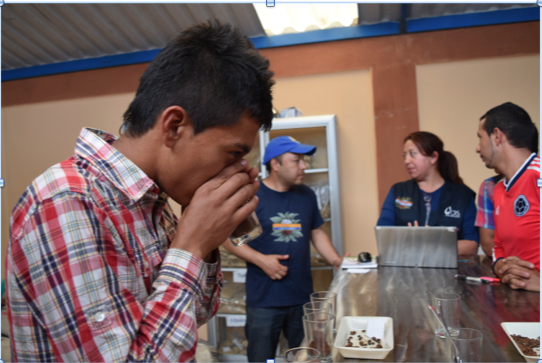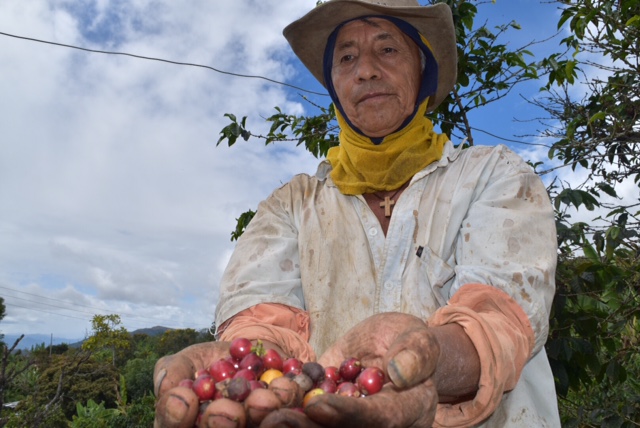
In the southwestern region of Colombia, called Nariño, the impact of climate change is becoming more visible. Trees are dying, coffee plants are contaminated by parasites and coffee beans are rotting on the ground, months before the season's harvest. In Nariño, the effects of climate change are making it more difficult for coffee-growing families to maintain their farms and most importantly pass their farms down to their children.
Forty thousand coffee-growing families rely on coffee for financial stability in this region. Since climate change is affecting the farmers' crops as well as their financial security, many young adults are hesitating to pursue careers in the coffee industry.
The younger generation of coffee growers have seen their parents struggle to produce enough coffee to sell every year after spending endless hours in the coffee farms. They have also seen how the decline in coffee production has taken an emotional toll on their loved ones' mental and physical health.
Year after year, more young adults are trading in their futures as small coffee producers in rural communities for a more financially stable future in bigger cities.
Catholic Relief Services also known as CRS, is a non-profit organization that partners with local churches throughout South America to help communities most affected by climate change. One of their offices is based in Pasto, where employees work on projects such as the Borderlands Coffee Project, which strives to support local coffee farmer initiatives and improve the quality of their product.
However, not all young people are turning away from the family business.
Nineteen-year old Christian Dias, a university student by day and Catholic Relief Services employee, analyzes the quality of coffee from different regions of Nariño. Like many young people living in this region, Dias grew up with coffee. His family spent endless hours working in the coffee farms and relied on coffee to support themselves financially.
Dias saw first-hand how coffee could improve a family's quality of life, but he also met many young people who did not want to become coffee farmers because of the uncertain future of coffee.
"Most of my friends want to leave their small towns and go to bigger cities because they don't want to be poor," Dias said.
Many young people think that living in a bigger city will provide more financially stable jobs than staying in their own small towns, Dias says. Still Dias remains optimistic that more young people will begin to see that the future of coffee is bright and full of opportunities.
Andrés Montenegro, the coffee program officer at CRS, wants to bridge the gap between the younger and older generations of coffee producers by creating more incentives for students out of college to become trained as coffee analysts. "It's very important that more young people start working in the coffee industry because they are the future of coffee," said Montenegro.
Coffee analysts like Mr. Dias can help struggling farmers like 76-year old Don Senin improve coffee quality. Like his father and grandfather before him, Don Senin has dedicated his life to coffee production. For him, coffee has become no longer a burden but a source of pride.
On his farm, Don Senin's wife and three children grow coffee, vegetables and raise animals. Don Senin hopes that the negative impacts of climate change subside, so that one day he can pass his farm on to his children and that they can continue the legacy.
(Camila DeChalus spent two weeks in June with the Catholic Relief Services in Nariño.)





